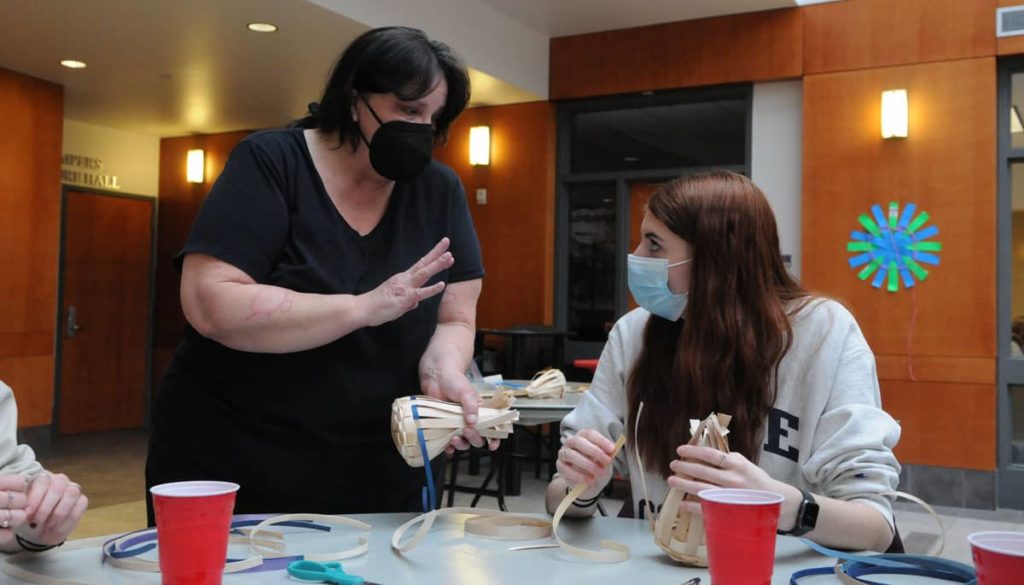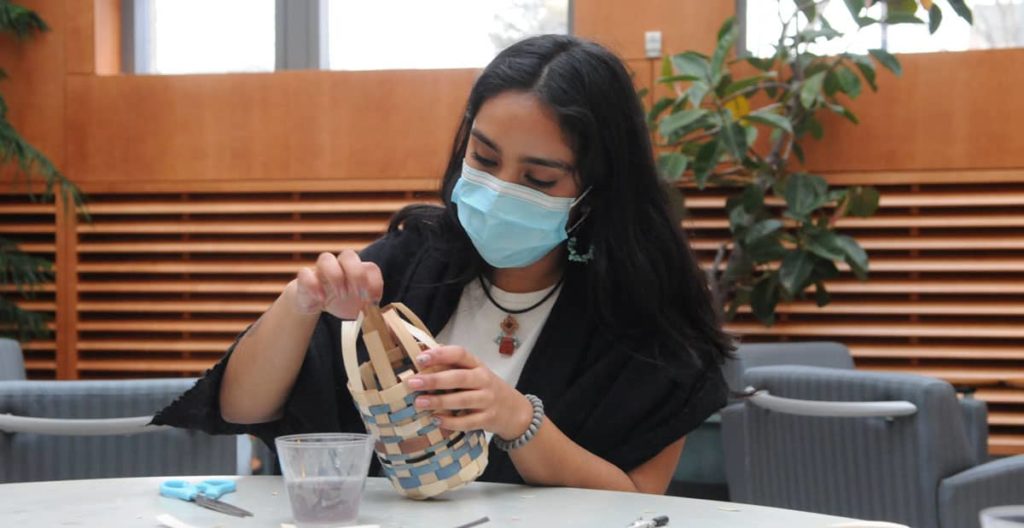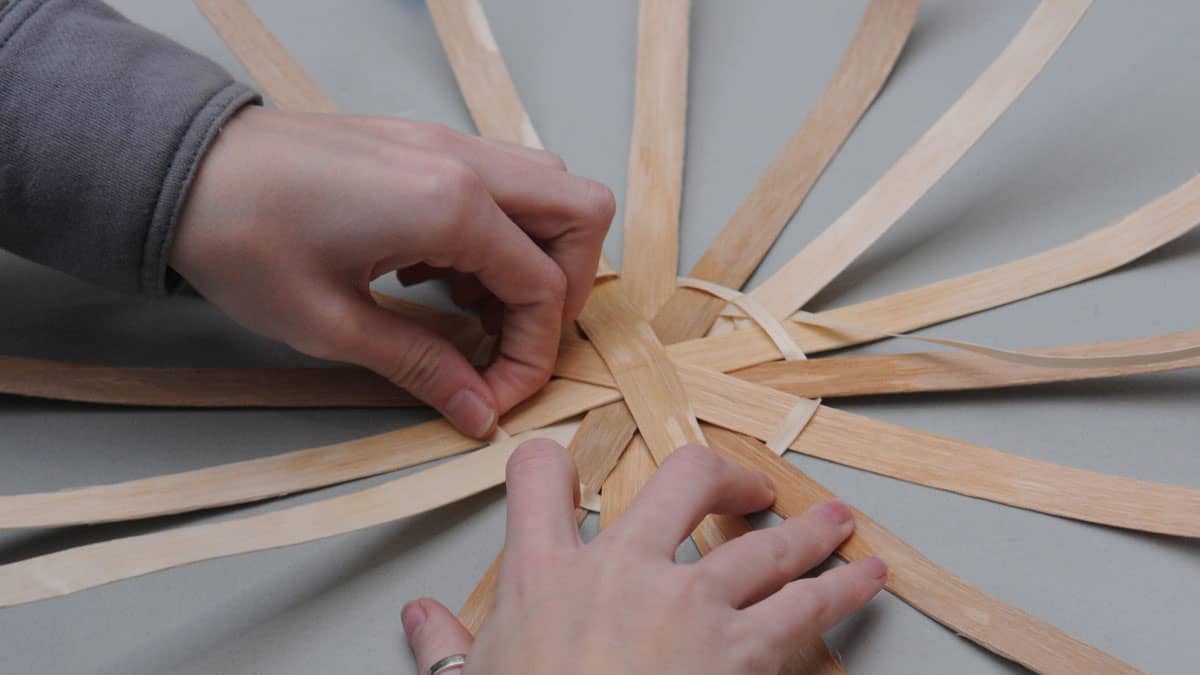Students in the ethnobotany class taught by Dr. Jennifer Blake-Mahmud received a hands-on lesson in culture and history during their exploration of traditional ecological knowledge earlier this semester.
Guest speaker Kelly Church of the Match-E-Be-Nash-She-Wish Band of Pottawatomi Indians (Gun Lake Tribe), whose family has practiced the art of black-ash basket weaving for generations, taught the students about indigenous land management, her family’s history in the area and the threats to ash trees from the emerald ash borer. In addition to having studied the tradition, which is known across the Great Lakes region and Northeast where black ash trees range, Church is a respected basket weaver herself — one of her pieces is even in the college’s Permanent Art Collection in the Kruizenga Art Museum.

She explained how for thousands of years the Anishinaabe people have journeyed to swamps to locate and harvest the trees, painstakingly rendered them into narrow strips and crafted them into baskets. Along the way, she guided the students in making baskets of their own, an opportunity to feel the pliable material in their own hands and to experience shaping it weave by weave into baskets of their own.
Church noted that although archeological examples are scarce because of the biodegradable nature of the material, fragments from as long as 2,000 years ago have been found. Today, Church explained, the millennia-long practice is at risk of being lost, with the invasive emerald ash borer having decimated Michigan’s population of black ash trees, killing some 650 million of the estimated 803 million of the black ashes that were in the state.
“It’s affecting the trees that we have used for our black ash tradition since before this country was a country,” she said.
Hope College’s ethnobotany course focuses on traditional ecological knowledge for the first third of the semester. “This first unit is all about trying to understand a different approach to ecology and the land,” said Blake-Mahmud, an assistant professor of biology. Other botanical topics for the unit include inventories of plant species used by various Inuit tribes in Canada, traditional methods of using plants to deter herbivorous insects in Ethiopia, grain fermentation practices in Eastern Europe, and partnerships between scientists and Aboriginal peoples for conducting controlled burns in Australia. Readings include peer-reviewed scientific literature along with the New York Times bestselling book Braiding Sweetgrass: Indigenous Wisdom, Scientific Knowledge and the Teaching of Plants, a collection of essays by Robin Wall Kimmerer.
“I was really excited to learn about the intersection of plants and people,” junior biology major Ximena Figueroa-Enriquez said of her decision to enroll in the course. Reflecting on the day’s activity, she said, “It made me realize how difficult of an art form it is. It takes a lot of patience and intention.”

For the second third of the semester, the course explores forensic botany — how plants have been used as evidence in criminal cases, both historic and current. It will conclude with medicinal botany, examining the bioactivity of plants and their use by animals (both human and non-human) for medicinal purposes.
Church’s visit to the class was made possible through support provided by the college’s Provost’s Office. She will return to campus to deliver a public lecture on Thursday, March 30, at 7 p.m. in Winants Auditorium of Graves Hall, that will be co-sponsored by the Department of Biology; American and Ethnic Studies program; Center for Diversity, Equity and Inclusion; Department of History; Kruizenga Art Museum; and Women’s and Gender Studies program. The March 30 presentation is open to the community, and admission is free.
More information about the tradition of black ash basketry and Church and her work is on her website, woodlandarts.com.


